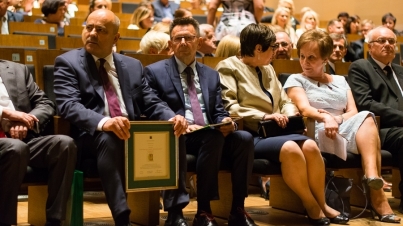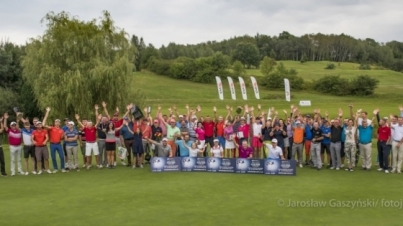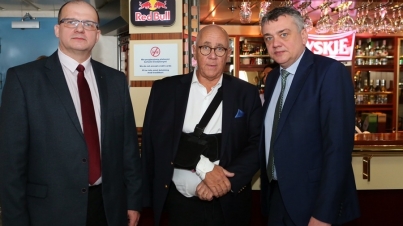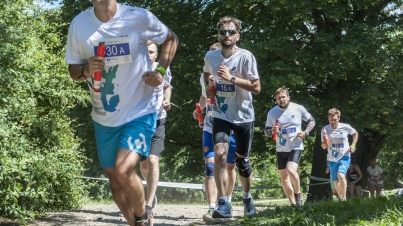News
News
People
Presentations
After Hours
Calendar
Currencies
Galleries
Advertising
About us
Contact
Adressess
Newsletter
Start!: Academic Incubator for Entrepreneurship will provide funds and know-how
Thanks to the support provided by the Academic Incubator for Entrepreneurship of West Pomeranian University of Technology several dozen new firms have been established. Jakub Szpon, the director of the Academic Incubator, talks about these new entities and the chances of obtaining further subsidies.
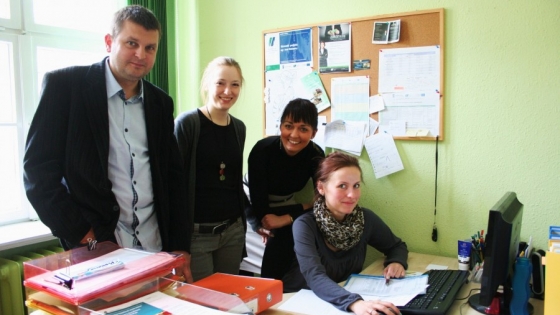
Szczecinbiznes.pl: The Academic Incubator for Entrepreneurship has just finalized two projects addressed to individuals who plan to start their own businesses. Tell us more about those undertakings.
Jakub Szpon: One of these projects called First Business was targeted at students and graduates of all schools of higher education in the West Pomeranian region who are below 35 years of age. 40 percent of spots were set aside for the disabled. During two editions of the program we accepted 30 candidates and 20 of them received financial aid up to PLN 40 thousand plus bridging funds (up to PLN 1 000 for the first six months of running their businesses). The other of our projects entitled: Your business is Your Future was addressed to the students and graduates of West Pomeranian University of Technology. Participants could also obtain investment support up to PLN 30 thousand and bridging funds. 90 persons took part and 54 of them obtained subsidies.
Training courses and professional advice given to participants constituted crucial elements of both projects. The projects are now coming to an end, which means that it has been a year since our winners started their commercial activities. They have been under our tutelage so far and now they are about to become independent.
Are young people interested in this type of support?
The interest is enormous. During the latest edition of First business we received over 300 applications for 15 available spots. This primarily resulted from the fact that we were one of the last institutions providing grants and therefore, all eligible candidates applied to us. But it was not always so – the interest seems to have systematically grown over time. Four years ago, when our first editions were launched, there were not more than 4 to 5 persons per spot. The nation-wide promotional campaign and positive examples of our people who participated in the programme and thrived surely contributed to this success.
How to obtain subsidies?
Our recruitment process has three stages. First the business idea is presented and assessed by the commission. Then the candidate is interviewed by a psychologist. The final third stage has the character of a competition – this is also the time for training, advice and business plan creation. The subsidies are granted to the individuals selected from those who manage to get through to the third stage. Additionally, each project has specific guidelines regarding beneficiaries. We assess different aspects, such as the business idea, innovation, how it corresponds to the candidate’s education, the business plan, etc.
Some claim that non-refundable subsidies for young people spoil the market, because the beneficiaries have a competitive advantage over existing firms, and spoil the young entrepreneurs too, because quite often they do not need to invest – if the business does not work out, their losses are trifling and so, their resolve is not strong enough. What are your counter-arguments?
I believe that our recruitment process allows us to eliminate those who do not treat the matter with seriousness or who are not determined enough. The interview with the psychologist is of key importance in this context. Our assumption is that it is not sufficient to fulfil the criteria and have good intentions. To put it in other words, the rule: ‘when there is a will, there is a way’ does not always apply - not everybody is cut out to run business activity. For that reason, as part of our recruitment, we set entrepreneurship tests where a psychologist evaluates predispositions and motivations of candidates.
What kind of business ideas do young people usually come up with?
The ideas are very diverse and range from setting up a hair styling salon to constructing robots. One of our beneficiaries has built a robot for product labelling. For obvious reasons, we strongly support all innovative ideas, and the candidates who think up something original and inventive score additionally. Nonetheless, many of them want to establish ‘traditional’ firms, such as architectonic or garden landscaping companies.
What problems are usually encountered by persons who wish to start their own businesses?
The primary problem which we want and are able to fix for them is lack of resources. Another issue is know-how, i.e. knowledge how to conduct business. We not only provide the money but also the training and advice on entrepreneurship. The persons who seek us out are not familiar with the market, they do not know much about how to make settlements, logistics and marketing are foreign territories for them. This is what we teach them about during training courses.
What mistakes do they make when taking their first steps in the world of business?
Wrong market evaluation is a common mistake committed by almost all candidates. I call it an original error, because as a rule, it consists in evaluating the reality too optimistically and looking into the future. Young people tend to assume that everything will be all right, that they will have customers and orders, whereas in truth, the market is tough and sometimes it is difficult to pull through.
Does the Academic Incubator lend a hand?
We help by sharing knowledge, for instance in the scope of marketing. What is more, ‘our’ firms are advertised on the Incubator’s website, this year we also organized a billboard campaign and arranged a conference in the course of which they were promoted. Another important aspect within the Incubator is establishing contacts among firms and entrepreneurs. This is a perfect starting point – service exchange is simply cheaper that way.
How do these firms fare in the market?
The firms set up with the use of our funds are under our protection for a year. We ensure them advice and professional support, we also inspect them. Thus, these young entrepreneurs are not left to their own devices – they can fall back on us. Over that one-year period they all are 100 per cent operational. In fact, it happened only once that a firm did not last a year and that was because the beneficiary cheated us – took the money and fled abroad. As regards the period following the Incubator’s protection, the firms seem to be fairly durable from the economic perspective. My estimation is that only one in twenty goes out of business.
Do young people willing to establish their own businesses have any chance of receiving aid from the Academic Incubator?
Most certainly. On 01 July we start the project called Go to the future with your own business. We are planning to organize three editions of the programme and cover 60 individuals in total, 48 of whom will receive grants of PLN 20 thousand. The programme is targeted at the unemployed living in our province, with special focus on women and the disabled. The recruitment for the fist edition is scheduled for September.
ŁP


































